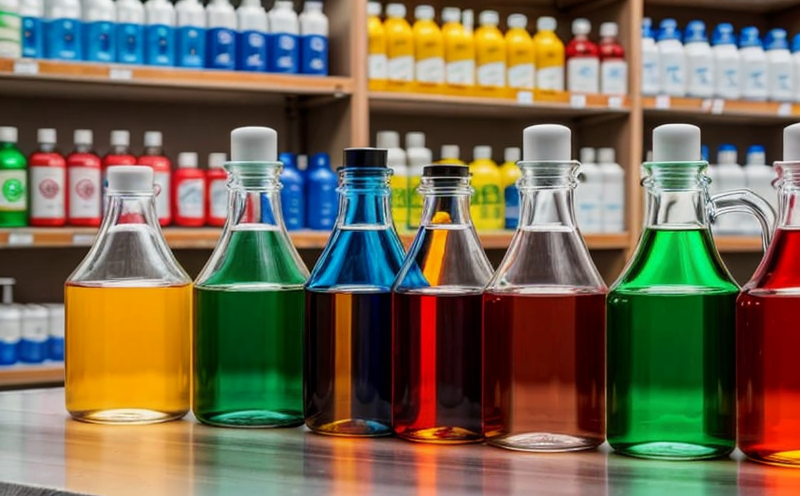GB T 20388 Determination of extractable heavy metals in fabrics
The GB T 20388 standard provides a comprehensive methodology for the determination of extractable heavy metals in fabrics. This service is designed to ensure that textile products meet stringent environmental and safety regulations, particularly concerning the presence of harmful heavy metals such as lead (Pb), chromium (Cr), cadmium (Cd), and mercury (Hg). The test aims at identifying these contaminants through a rigorous extraction process followed by accurate quantification using atomic absorption spectrophotometry or inductively coupled plasma mass spectrometry.
The GB T 20388 procedure involves several critical steps: sample preparation, extraction of heavy metals from the fabric matrix, and analysis. The first step is to cut a representative sample of the fabric according to specified dimensions and weight. This ensures that the test results are reflective of the entire batch or lot. Once prepared, the samples undergo soaking in distilled water for a prescribed duration under controlled conditions.
The extraction process is crucial as it determines the accuracy and reliability of subsequent metal quantification. After extraction, the solutions containing potentially extracted heavy metals are filtered to remove any insoluble material. The filtrates are then analyzed using either atomic absorption spectrophotometry (AAS) or inductively coupled plasma mass spectrometry (ICP-MS), depending on the laboratory's equipment and expertise.
The acceptance criteria for this test are defined by GB T 20388, which specifies permissible limits of heavy metals based on fabric type and intended use. Compliance with these standards is essential to ensure that textile products do not pose health risks due to the presence of harmful substances. This service supports manufacturers in achieving compliance requirements set forth by regulatory bodies such as Oeko-Tex Standard 100 or REACH regulations.
The importance of this test cannot be overstated, especially for textiles intended for children's clothing and other direct-contact garments. Non-compliance can lead to severe penalties and reputational damage. Eurolab, with its state-of-the-art facilities and experienced technical staff, offers this service as part of our commitment to helping clients navigate complex regulatory landscapes.
| Applied Standards | Description |
|---|---|
| GB T 20388-2017 | Determination of extractable heavy metals in fabrics |
| ISO 14362 | Guidelines for the extraction and measurement of heavy metals from textiles |
The above table provides an overview of the standards that guide this testing process. The second standard, ISO 14362, offers additional guidelines which complement GB T 20388.
Applied Standards
| Standard Reference | Description |
|---|---|
| GB/T 20388-2017 | Determination of extractable heavy metals in fabrics. |
| ISO/IEC 17025:2017 | Certification for the competence of testing and calibration laboratories. |
The application of these standards ensures that all tests conducted by Eurolab are accurate, reliable, and compliant with international best practices. Compliance with ISO/IEC 17025:2017 further underscores our commitment to quality assurance.
Industry Applications
- Fabric manufacturers aiming to meet the stringent requirements of Oeko-Tex Standard 100 and REACH regulations.
- Textile exporters looking to ensure their products comply with international safety standards.
- Research and development teams seeking to innovate sustainable practices in textile manufacturing.
The extraction of heavy metals is a critical step in ensuring that textiles are safe for human contact. This service supports these industries by providing accurate and reliable data on the presence of harmful elements within fabrics.
| Industry Applications | Description |
|---|---|
| Fabric Manufacturing | Ensures compliance with international safety regulations. |
| Textile Exporters | Avoids non-compliance penalties and maintains market access. |
| R&D Teams | Supports innovation in sustainable textile manufacturing practices. |
Eurolab Advantages
EuroLab offers unparalleled expertise and state-of-the-art facilities to deliver accurate results efficiently. Our highly trained technicians ensure that every sample is processed meticulously according to the specified protocols outlined in GB T 20388-2017. Additionally, our commitment to continuous improvement means we stay at the forefront of technological advancements in analytical techniques.
We provide a comprehensive service package including:
- Sample preparation
- Extraction process
- Analytical services using AAS or ICP-MS
- Detailed reporting and interpretation of results
This ensures that our clients receive not just data, but actionable insights into the safety of their products. Our experienced team works closely with each client to understand their unique needs and tailor our services accordingly.





